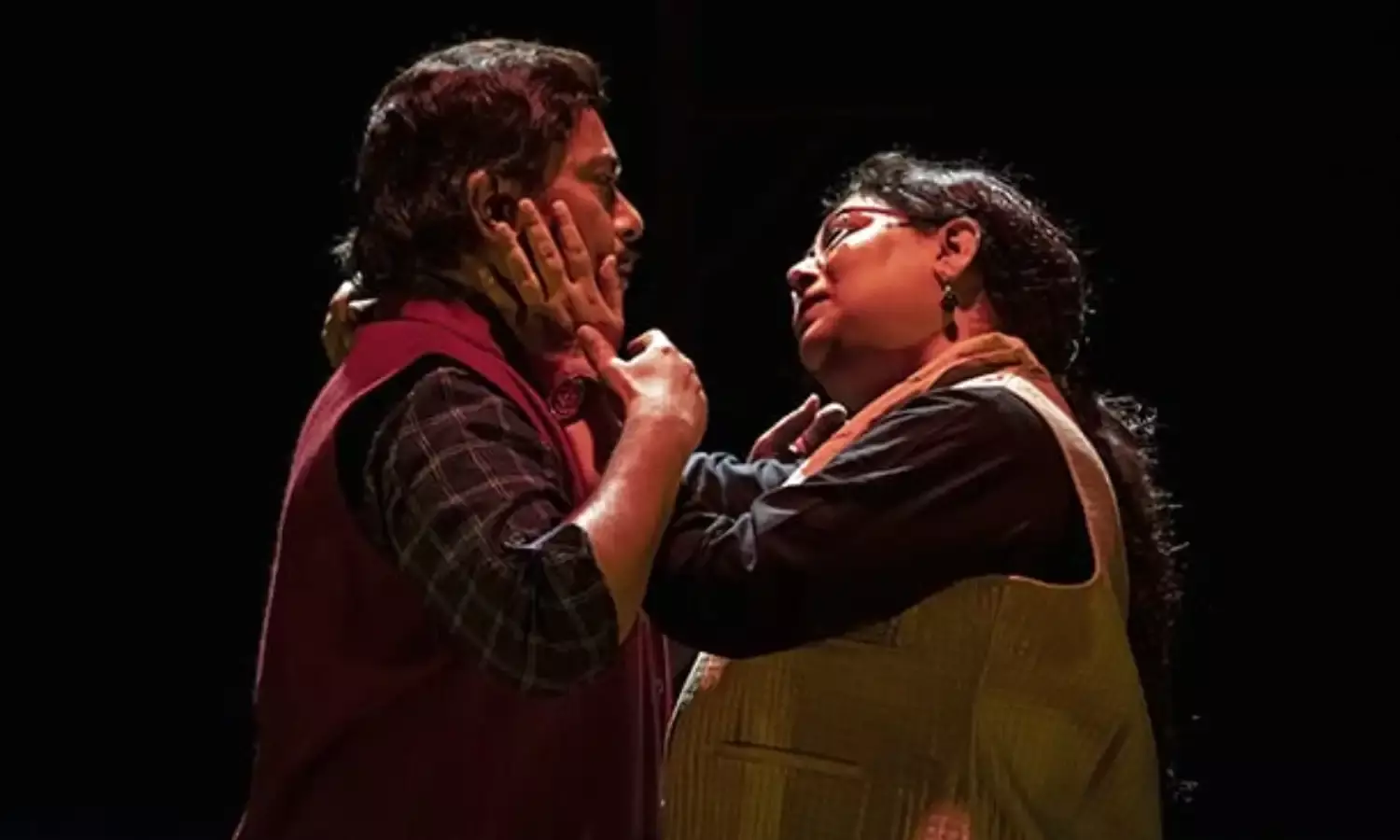A Tale of Two Typists
Love can be found in the most unexpected and boring circumstances;

Typist, a single-set play, was recently staged at a Kolkata theatre. Presented by Bilu Dutta and Mukhomukhi, and directed by Poulami Chatterjee, the Typist was translated and adapted from Murray Schisgal's original play English by Soumitra Chatterjee.
It shows that love can be found in the most unexpected and boring circumstances life presents us with. It depends on how we use, abuse or misuse those circumstances hoping to bring some emotional sensitivity into our otherwise drab and dull lives.
Schisgal was a playwright and screenwriter who took his offbeat brand of humor to Broadway. Critic Walter Kerr of New York Magazine wrote about Schisgal, "If the avant-garde, up to now, has successfully exploded the bright balloons of cheap optimism, Mr. Schisgal is ready to put a pin to the soapy bubbles of cheap pessimism. Whatever social and philosophical stalemates we have come to, wit, at least, need not be halted in its tracks."
The play Typist has just two characters, Indrani Dasgupta (Poulami Chatterjee) and Aniruddha Haldar (Debshankar Haldar) who joins the office just as the play opens. Indrani is typist-and-supervisor in this two-member outfit while Aniruddha is on a temporary contract. He takes law classes in the evenings to realise his dream of becoming a successful lawyer one day.
Though Dasgupta announces that she does not like to be a supervisor as she hates to order people about, we find her enjoying her "boss" status. She is seen ordering and correcting Haldar as he fumbles when typing addresses on postcards.
They are seated opposite each other in a quite ordinary office with a coat-and-bag hanger on one side, and some drawers on the other. The "boss" who according to Indrani is a no-good dictator, is never seen on stage.
Aniruddha Haldar is married and has two kids, Indrani Dasgupta, is a single woman who lives with her mother. Dasgupta is a bit angry as she feels Haldar has deliberately not let on that he is a married man. She picks up the office phone and pretends to speak to an imaginary "boyfriend".
Years pass and Indrani and Aniruddha grow old together, and keep sparring, getting emotionally close, back-slamming the invisible boss and exchanging personal tid-bits about their lives. They discover that somewhere along the way, they have grown to love each other.
There is no "happy ending" as Aniruddha loves his kids too much to split with his family. Though it takes time for the sad and lonely Indrani to accept this reality, they continue to grow fonder of each other.
Along the way, the only slice left of Aniruddha's dream of becoming a successful lawyer fades into disappointment on the one hand and acceptance on the other. He is seen expressing his hopelessness by venting his anger at his typewriter.
He thumps the stage with his foot to claim "I can type with my foot too" but comes to terms with his less-than-ordinary life. Indrani too, takes life as it comes, talking about her married sister and her children she does not care for much, or talking to her mother over the telephone.
The two spar about simple things like when they could have lunch together, or, whether they should ask the boss for an increment, or, whether Anirudha should quit and follow up on his dreams of becoming a lawyer.
Within the short span of the play, they both age and that is expressed visibly in their body language and their graying hair. Indrani wears reading glasses and has a slower gait. Aniruddha too matches her in terms of ageing.
They get closer without sex entering into the relationship. The only sound that plays out like a regular rhythm is the sound of the typewriter keys. This lends the music that adds rhythm to their dull lives.
But are their lives really dull? Do Indrani and Aniruddha not find their way out of loneliness and frustration and spells of depression within each other? They are in a dark and drab office tapping away at their typewriters. Is that also another way in which they communicate with each other and feel bound to one another?
The play comes to a drab and sad end as, with a friendly "good night" to their 'invisible' boss. Indrani and Aniruddha go their own ways, to their lives lived away from the office with its piles of letters to be typed and of course, the two typewriters set in front of each other. The typewriters are an extension of their lives adding meaning to it.
This is life, without drama, without shouts and tears, without tragedies except those that lay hidden behind the truth of living. The two actors, Poulami Chatterjee and Debshankar Haldar, veterans of the Bengali stage, sparkle in the performances they inject with life.
Chatterjee, a trained classical dancer, breaks into a free-flowing dance during a happy moment, while Haldar expresses his love by embracing her just once or twice, briefly. The stark and simple set design, by Bilu Dutta is realistic.
Dishari Chakraborty's music is subtle, understated and low key while Manoj Prasad and Manas Mukherjee's light composition and effects are in harmony with the changing moods of the two characters. In other words, an uneventful 40 years is telescoped into 60 minutes.
Love wears many shades and colours and plays around with every kind of music one can imagine. It exists in the hidden nooks and corners of our lives but we do not realise it. Typist is a classic example of this truth.

